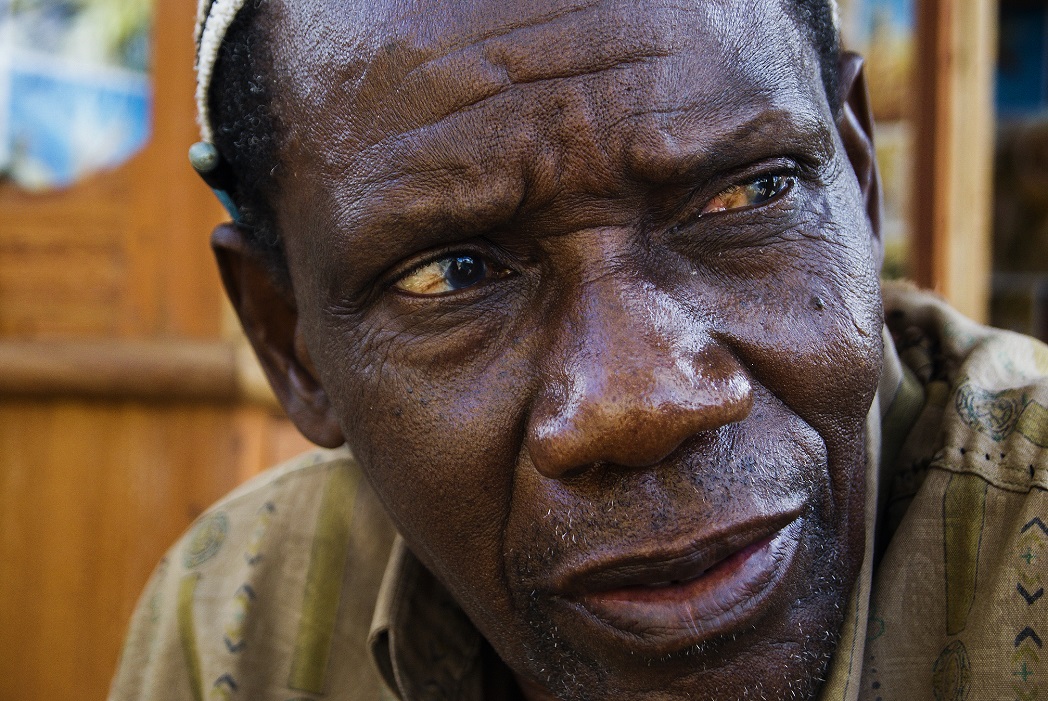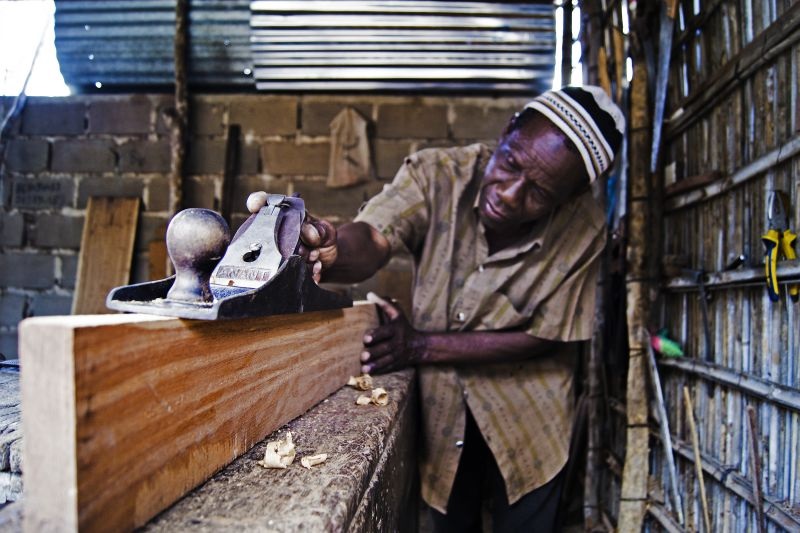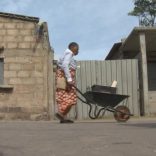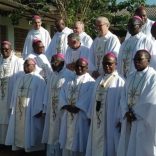Mozambique: Meet Vovó Cecília, who runs a mobile library in Mafalala at the age of 75 - Watch
Mozambique: Joselito Uawiri fled three wars, but never lost the will to start over

Photos: Luisa Nhantumbo / Lusa
Carpenter Joselito Uawiri survived all three of the wars in Mozambique and “lost a lot” in his escapes to safety, but he never left his tools behind, or his dream of starting life again in a place where peace prevails.
At the age of 62, 27 of them lived in Mocímboa da Praia, where he had a small workshop, Joselito had always made a living from carpentry, until the arrival of the rebels who devastated his town, bringing to mind the traumas he experienced during the liberation struggle against the Portuguese colonial regime and the 16-year civil war.
Often on the run during conflicts, he never left his tool bag behind, hoping always to start over wherever he went, as long as there was peace.
When, on a night of July 2020, the insurgents staged the attack that opened space for them to dominate Mocímboa da Praia, Joselito was at home with one of his nine children. Realising the gravity of the attack, on the fourth day he made the decision to flee.
“My first thoughts were for my tools. I started putting my tools [in the bag], and I also picked up two beds, nothing else,” the carpenter tells Lusa from his new improvised workshop in the middle of bustling Paquete, in the provincial capital of Pemba.
In Mocímboa da Praia, Joselito left behind more than two decades of work that had earned him renown and the respect of his clients, including the local authorities, who even commissioned a seat for the head of state, Filipe Nyusi, during his working visit to the town years ago, the carpenter says.
Today, in his new workshop in Pemba, he needs to win new clients, but the process is not easy, considering that the hectic life in the provincial capital of Cabo Delgado is very expensive when compared to the quietness of Mocímboa da Praia.
“People from Palma [about 94 kilometres from Mocímboa da Praia] would come to my workshop to buy my work. It was easy for me there. But here [in Pemba], wood is very expensive,” Joselito complains.
Despite the challenges, fighting for one’s livelihood, whether in Mocímboa da Praia or Pemba, was never in question.
“I have nothing else to do. This is the occupation that God has given me. If I stay [with my hands folded], what am I going to eat?” he asks.
Although he is not sure how things are going at his house in Mocímboa da Praia, the desire to return to the town remains intact, fuelled by what he hears on the news, with announcements of great strides in operations to stop the armed insurgency in Cabo Delgado.
“I left just like that. I want to go back to at least see how my things are, because when I left my house it hadn’t been burned,” he adds.
The hope of returning to their original areas has, in recent weeks, dominated the minds of many people besides Joselito, all forced to flee armed violence in Cabo Delgado. This is due to the positive results of operations by the joint Mozambique-Rwanda force , which, on August 8, reconquered the strategic port town of Mocímboa da Praia, which had been in the hands of the rebels for over a year.
During this period of rebel domination, more than 62,000 people, almost the entire population, fled the town. The trail of destruction is deep, Mocimboa mayor Cheia Carlos Momba told Lusa on Tuesday.
The coastal town of Mocímboa da Praia, one of the main towns in the north of Cabo Delgado province, was the site of the armed groups’ first attack, in October, 2017.
Mocímboa da Praia is located 70 kilometres south of the construction area of the natural gas project led by Total.
Armed attacks by insurgent groups in northern districts of Cabo Delgado have cost more than 3,100 lives, according to the ACLED conflict registration project, and displaced more than 817,000 residents, according to the Mozambican authorities.














Leave a Reply
Be the First to Comment!
You must be logged in to post a comment.
You must be logged in to post a comment.